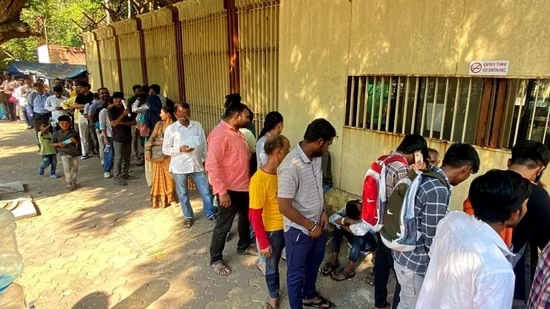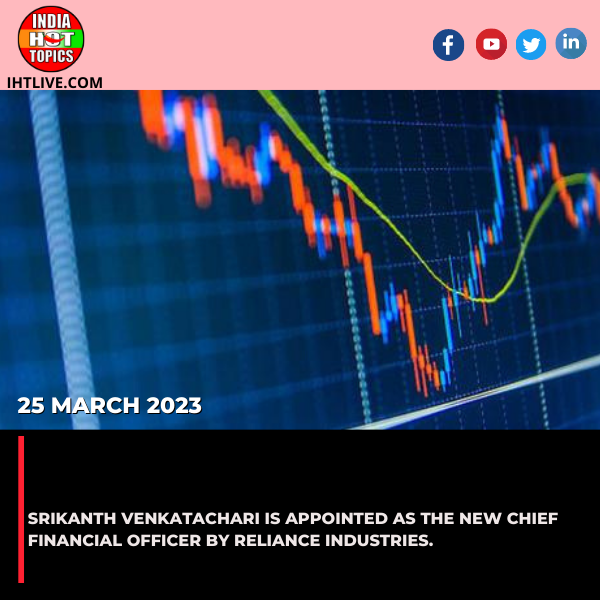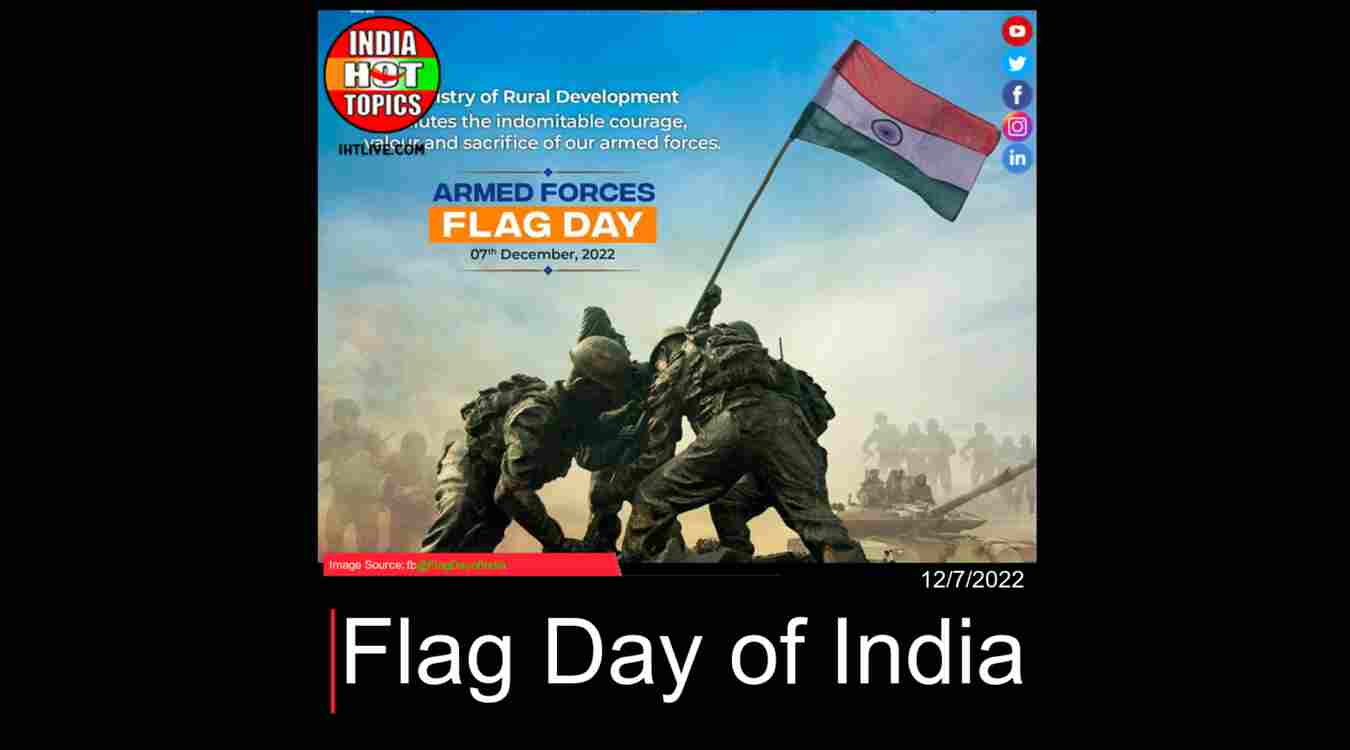Bhagavad Gita
Minister calls for CBFC to answer for Oppenheimer-Bhagavad Gita controversy
Minister Calls for CBFC to Answer for Oppenheimer-Bhagavad Gita Controversy
The recent controversy surrounding the depiction of J. Robert Oppenheimer and the Bhagavad Gita in a film has sparked heated debates and discussions across India. As the issue gains momentum, a government minister has called upon the Central Board of Film Certification (CBFC) to provide clarity and justification for its decision regarding the contentious scenes in the movie. In this blog, we delve into the details of the controversy, explore the implications of the minister’s call for accountability, and discuss the importance of preserving artistic freedom while respecting cultural sensitivities.
The controversy centers around a film that features a scene depicting J. Robert Oppenheimer, a prominent physicist and key figure in the development of the atomic bomb. In this scene, Oppenheimer allegedly recites verses from the Bhagavad Gita, a revered ancient Hindu scripture. The inclusion of Oppenheimer reciting the verses, along with the historical context of the atomic bomb’s creation, has sparked outrage among certain sections of society.
Opponents of the scene argue that it is inappropriate to associate a sacred text like the Bhagavad Gita with a figure linked to such a devastating event in history. They claim that it not only misrepresents the scripture’s teachings but also hurts the sentiments of the Hindu community.
Amidst the intensifying controversy, a government minister has raised concerns about the CBFC’s role in certifying the film without addressing potential sensitivities. The minister’s call for accountability stems from the belief that the CBFC should exercise its responsibility to safeguard against any misrepresentation or distortion of cultural or religious elements in films. Critics argue that the board may have overlooked the potential impact of the scene on religious sentiments, leading to the need for an explanation from the CBFC.
The debate surrounding artistic freedom versus cultural sensitivities is a complex and delicate one. Filmmakers, artists, and creative professionals advocate for the freedom to express their artistic vision without undue censorship or restrictions. Art has long been a medium for exploring diverse perspectives and challenging societal norms. However, this creative liberty comes with the responsibility to consider the potential implications of their work, particularly concerning culturally sensitive subjects.
On the other hand, the protection of cultural and religious sentiments is equally important, as they are integral to the social fabric of a diverse nation like India. Insensitive portrayal or misrepresentation of cultural elements can inadvertently lead to disharmony and hurt sentiments.
The Oppenheimer-Bhagavad Gita controversy serves as a reminder of the delicate balance that must be struck between artistic freedom and cultural sensitivities. The government minister’s call for the CBFC to address the concerns is an important step towards ensuring accountability and transparency in the certification process. As the CBFC responds to the controversy, it must engage in a constructive dialogue with filmmakers and stakeholders to better understand and navigate the complex terrain of cultural representation.
In the spirit of a democratic and inclusive society, both filmmakers and certification bodies should strive to foster an environment where artistic freedom thrives while respecting the sentiments and beliefs of diverse communities. Ultimately, open communication and mutual understanding will pave the way for a culturally enriched cinematic landscape that celebrates creativity and honors the nation’s cultural heritage.
General News Platform – https://ihtlive.com/
Entertainment News Platforms – anyflix.in
Construction Infrastructure and Mining News Platform – https://cimreviews.com/
Podcast Platforms – https://anyfm.in/

India
YouTuber Jyoti Malhotra visited Pakistan before Pahalgam attack, had also travelled to China

Malhotra a effectué plusieurs visites au Pakistan, y compris un voyage avant l’attaque terroriste de Pahalgam, et il s’est également rendu en Chine. Deux jours après l’arrestation de la vidéaste Jyoti Malhotra originaire de Hisar pour des accusations d’espionnage, le surintendant de police de Hisar, Shashank Kumar Sawan, a déclaré dimanche que des agents.
Du renseignement pakistanais étaient en train de la former pour qu’elle devienne une source d’information. Il a dévoilé que Malhotra avait effectué plusieurs visites au Pakistan, y compris un voyage avant l’attentat terroriste de Pahalgam, et qu’il avait également voyagé en Chine.
Restez informé des dernières actualités tendance avec HT. Consultez des articles détaillés ici
Lors d’une conférence de presse, SP Sawan a déclaré que les agences centrales avaient signalé à la police du Haryana que les PIO recrutaitient activement des influenceurs sur les réseaux sociaux pour promouvoir des récits plus doux New Delhi, May 19, 2025 — Indian authorities.
Are intensifying their investigation into Jyoti Malhotra, a travel vlogger from Hisar, Haryana, who was arrested on charges of espionage. Malhotra’s multiple visits to Pakistan and a trip to China have come under scrutiny, especially in light of the recent Pahalgam terror attack in Jammu and Kashmir According to Hisar Superintendent of Police Shashank Kumar Sawan.
Malhotra had visited Pakistan several times, including a trip shortly before the April 22 Pahalgam attack that claimed 26 lives. She had also traveled to China in 2024. Authorities allege that Pakistani intelligence operatives were grooming her as an asset, leveraging her status as a social media influencer to gather and disseminate sensitive information.
Investigations reveal that Malhotra maintained contact with officials at the Pakistan High Commission in New Delhi and attended events hosted by them. Her travels to Pakistan were reportedly sponsored, and she received assistance from officials there for visa extensions and accommodations Malhotra’s visit to Pahalgam in January 2025, just three months before.
The terror attack, has raised suspicions about her activities in the region. Authorities are examining whether her presence in the area was linked to reconnaissance efforts for the attack. In addition to her travels, Malhotra’s financial records are under investigation. Officials have noted discrepancies between her known sources of income and the expenses incurred.
During her international trips, suggesting potential undisclosed funding sources Malhotra’s father has defended her, stating that her visits to Pakistan were solely for creating content for her YouTube channel and that she had obtained the necessary permissions for her travels. He questioned the allegations, emphasizing that having friends in Pakistan and contacting them.
Should not be deemed suspicious The case has prompted authorities to scrutinize other Indian travel influencers with connections to Pakistan. While no formal charges have been filed against them, the incident has sparked discussions about the potential misuse of social media platforms for espionage activities As the investigation continues, Malhotra remains in police.
Custody. Authorities are examining her electronic devices, financial communications to uncover the extent of her alleged involvement in espionage activities The Pahagam attack, carried out by militants associated with The Resistance Front, a group linked to Pakistan-based Lashkar-e-Taiba, has heightened tensions between India and Pakistan. The incident has.
Led to increased security measures and a reevaluation of cross-border interactions, especially those involving individuals with significant online influence. This unfolding case underscores the evolving nature of espionage in the digital age, where social media platforms can be exploited for intelligence gathering and dissemination. Authorities are urging vigilance Thorough vetting of individuals engaging in cross-border activities, particularly in sensitive regions Jyoti Malhotra’s.
- Group Media Publication
- Construction, Infrastructure and Mining
- General News Platforms – IHTLive.com
- Entertainment News Platforms – https://anyflix.in/
India
Vivo V50 launch in February 2025: Specs, features, and others we expect to launch
Vivo is gearing up to launch its latest addition to the V-series, the Vivo V50, in India in February 2025. According to industry sources, the anticipated launch date is around the third week of February, possibly on February 18.
Design and Display
The Vivo V50 is expected to feature a 6.67-inch AMOLED display, offering vibrant colors and deep contrasts. The design is reminiscent of the Vivo S20, which was released exclusively in China in December 2024.
Performance
Under the hood, the Vivo V50 is rumored to be powered by the Qualcomm Snapdragon 7 Gen 3 chipset, ensuring efficient performance for multitasking and demanding applications. The device is expected to come in multiple configurations:
- 8GB RAM with 128GB storage
- 8GB RAM with 256GB storage
- 12GB RAM with 256GB storage
Camera System
Photography enthusiasts can look forward to a versatile camera setup. While specific details are still under wraps, Vivo’s V-series has historically emphasized strong camera performance, suggesting that the V50 will continue this trend.
Battery and Charging
The Vivo V50 is expected to house a substantial 6,000mAh battery, supporting 90W fast charging. This combination ensures prolonged usage and quick recharge times, catering to users with active lifestyles.
Operating System
The smartphone is anticipated to run on Android 15, providing users with the latest features and security updates.
Color Variants
According to recent certifications, the Vivo V50 will be available in multiple color options, allowing users to choose a variant that best suits their style.
Pricing and Availability
While official pricing details are yet to be announced, industry estimates suggest that the Vivo V50 will be priced around ₹39,990 in India.
The device is expected to be available through Vivo’s official channels and major retail outlets across the country.
Conclusion
The Vivo V50 is shaping up to be a compelling option in the mid-range smartphone segment, offering a blend of performance, design, and innovative features. As the launch approaches, more detailed information is expected to emerge, providing a clearer picture of what this device will offer to consumers.
-
Tech5 months ago
Best Zebronics Bluetooth speakers you can buy today for an unmatched audio experience
-

 India2 years ago
India2 years agoNew Season 8 The Walking Dead trailer flashes forward in time
-

 India2 years ago
India2 years agoThe afternoon briefing revealed that 97.26% of the ₹2000 notes were returned, and the Israeli Prime Minister committed to war goals.
-

 World1 year ago
World1 year agoMichigan splash pad attack: A couple was shot seven times in total while defending their two small daughters.
-

 India2 years ago
India2 years agoSrikanth Venkatachari is appointed as the new chief financial officer by Reliance Industries.
-

 India2 years ago
India2 years agoPM Modi’s Three-Nation Tour Begins with a Traditional Welcome in Papua New Guinea
-

 Special 365 days3 years ago
Special 365 days3 years agoFlag Day of India
-

 India8 years ago
India8 years agoThe 9 worst mistakes you can ever make at work








.jpg)
.jpg)
%20(1).jpg)